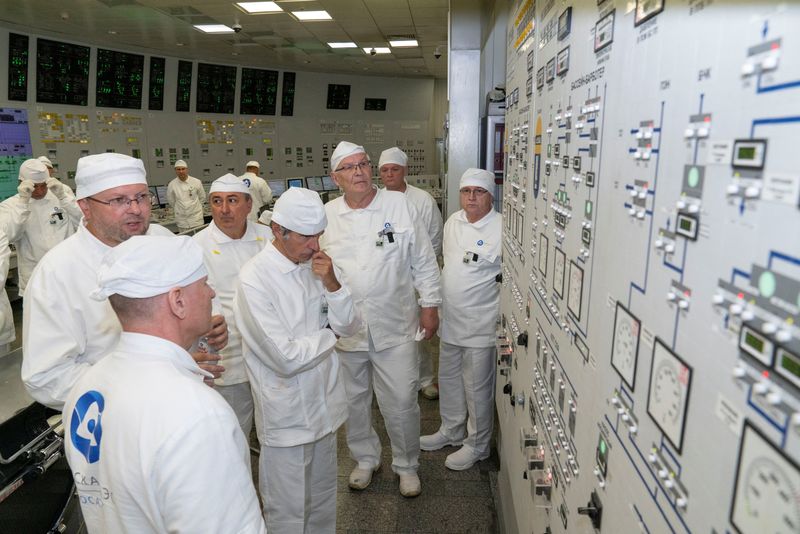
MOSCOW (Reuters) – Russia said on Wednesday it wanted the International Atomic Energy Agency to take a “more objective and clearer” stance on nuclear safety, a day after the head of the agency visited a Russian nuclear plant close to where Ukraine has mounted an incursion into the country.
IAEA chief Rafael Grossi toured the Kursk plant on Tuesday and warned of the danger of a serious nuclear accident there. He said he had inspected damage from a drone strike, which Russia had blamed on Ukraine, but did not say who was responsible.
Russian state news agency RIA quoted Foreign Ministry spokeswoman Maria Zakharova as saying in a radio interview that Moscow wanted the IAEA to speak out more clearly on issues of nuclear security, although she denied it was demanding that the agency should take a pro-Russian line.
“We see both the assessments and the work of this structure (the IAEA), but each time we want a more objective and clearer expression of the position of this structure,” Zakharova said.
“Not in favour of our country, not in favour of confirming Moscow’s position, but in favour of facts with one specific goal: ensuring safety and preventing the development of a scenario along a catastrophic path, to which the Kyiv regime is pushing everyone.”
Ukraine has not responded to Russian accusations that it attacked the plant in Kursk region, close to where its forces launched a surprise incursion on Aug. 6 that Russia is still trying to repel. Fighting has been take place about 40 km (25 miles) from the facility.
Grossi said during his visit that the plant, built to a Soviet design, was especially vulnerable because – unlike most modern nuclear power stations – it lacked a containment dome that might offer protection in the event of a strike by drones, missiles or artillery.

Asked by a reporter at a news conference to condemn the drone damage as a “nuclear provocation” by Ukraine, Grossi replied: “Again, pointing fingers is something that I, as director general of the IAEA, must take extremely seriously. But it is obvious that you cannot separate what we have seen here from the recent military activity that we have seen.”
The IAEA has urged both sides throughout the 30-month war to refrain from fighting around nuclear plants in order to avoid a catastrophic incident.
This post is originally published on INVESTING.




